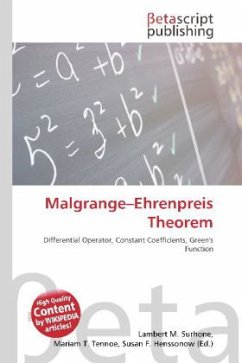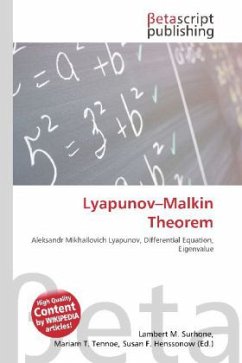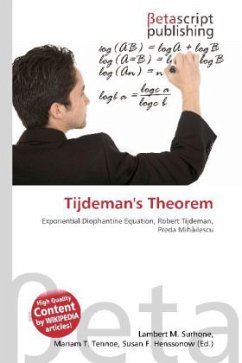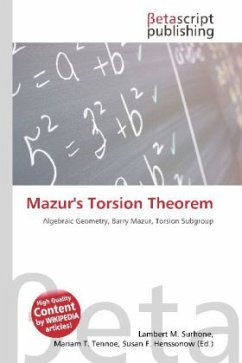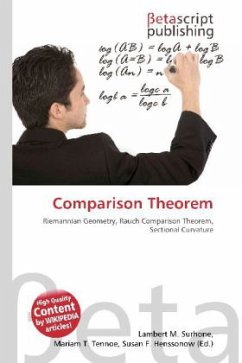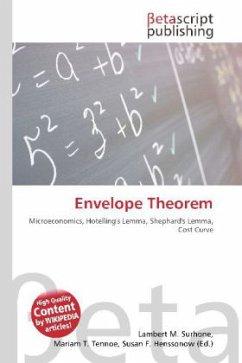Please note that the content of this book primarily consists of articles available from Wikipedia or other free sources online. In mathematics, the Malgrange Ehrenpreis theorem states that every non-zero differential operator with constant coefficients has a Green''s function. It was first proved independently by Leon Ehrenpreis (1954, 1955) and Bernard Malgrange (1955 1956). The original proofs of Malgrange and Ehrenpreis were non-constructive as they used the Hahn Banach theorem. Since then several constructive proof have been found. There is a very short proof using the Fourier transform and the Bernstein Sato polynomial, as follows. By taking Fourier transforms the Malgrange Ehrenpreis theorem is equivalent to the fact that every non-zero polynomial P has a distributional inverse. By replacing P by the product with its complex conjugate, one can also assume that P is non-negative. For non-negative polynomials P the existence of a distributional inverse follows from the existence of the Bernstein Sato polynomial, which implies that Ps can be analytically continued as a meromorphic distribution-valued function of the complex variable s; the constant term of the Laurent expansion of Ps at s = 1 is then a distributional inverse of P.
Bitte wählen Sie Ihr Anliegen aus.
Rechnungen
Retourenschein anfordern
Bestellstatus
Storno

